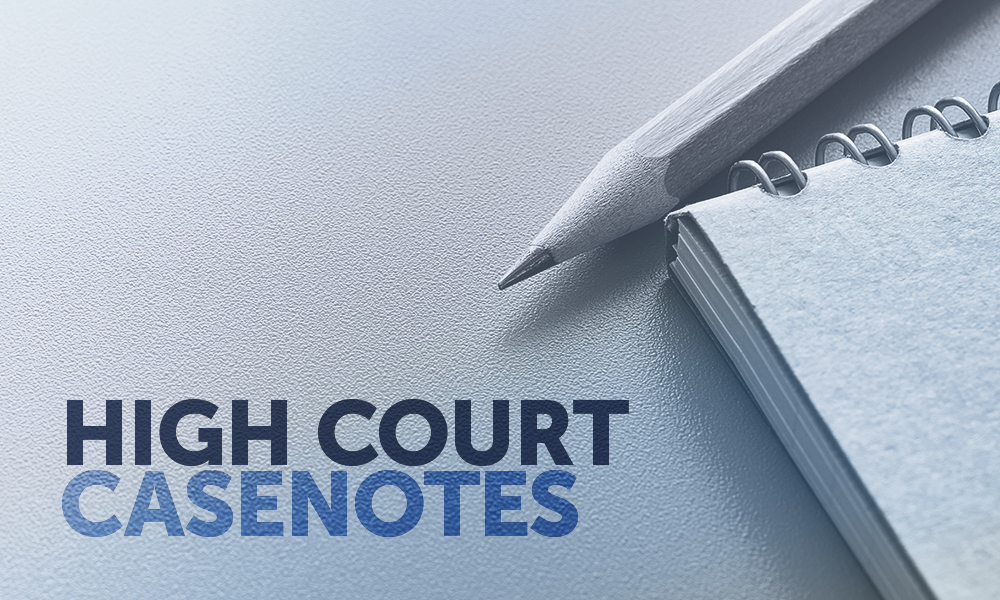In the High Court decision of Fairfax Media Publications Pty Ltd v Voller [2021] HCA 25 (8 September 2021), the High Court had to wrestle with a very 21st Century problem: unkind Facebook posts.
Here the High Court was required to determine whether news organisations, each maintaining a Facebook page, were publishers of defamatory comments posted by third parties on their Facebook page.
The respondent (Voller) had been incarcerated in a juvenile justice detention centre in the Northern Territory. The appellants had posted hyperlinks to news stories referring to Voller on their Facebook pages.
Clicking the hyperlink takes the reader to the full story on the appellants’ news website. Readers are invited, by options which appear under the post, to ‘like’, ‘comment’ on or ‘share’ the post. These options were standard features of the Facebook page and features which could be seen or read by other Facebook readers.
Facebook users responded to the appellants’ news posts about Voller with comments that were defamatory to him. Voller brought proceedings in the Supreme Court of New South Wales alleging that the appellants were liable as publishers of the users’ comments (FB comments). The parties agreed to have the issue of publication decided separately from the balance of the proceedings.
At first instance, the primary judge (Rothman J) held that the appellants were publishers of the FB comments. The trial judge’s decision was upheld on appeal (Simpson A-JA, Meagher and Basten JJA).
The appellants subsequently appealed, unsuccessfully, to the High Court. The plurality consisting of Kiefel CJ, Keane and Gleeson JJ (in a joint judgment) and Gordon and Gageler JJ (in their own joint judgment) dismissed the appeal.
The tort of defamation is committed in Australia on “the publication of defamatory matter of any kind”: Defamation Act 2005 (NSW) (Defamation Act), s7(2). The Defamation Act does not define what is meant by ‘publication’ of defamatory matter.
As Kiefel et al observed, at [10], resort must be had to the general law to determine the meaning of ‘publication’. The plurality, citing Webb v Bloch (1928) 41 CLR 331 and Trkulja v Google LLC (2018) 263 CLR 149, held that any act of voluntary participation in the communication of defamatory matter to a third party is sufficient to make the defendant a publisher: Kiefel CJ et al at [3] and Gordon and Gageler JJ at [96].
The plurality noted the availability of the ‘defence’ of innocent dissemination under s32 of the Defamation Act, but observed that the defence was only available to those publishers ignorant of the existence of the defamatory comment: Kiefel CJ et al at [48] and Gordon and Gageler JJ at [62].
But, as Gordon and Gageler JJ observed at [102], “the appellants’ attempt to portray themselves as passive and unwitting victims of Facebook’s functionality has an air of unreality. Having taken action to secure the commercial benefit of the Facebook functionality, the appellants bear the legal consequences”. And their Honours also considered that, here, the case of Oriental Press Group Ltd v Fevaworks Solutions Ltd (2012) 16 HKCFAR 366 – an internet discussion forum on which users posted defamatory matter – was aposite.
In dissent Edelman J and Steward J allowed the appeal in part in separate judgments that, as Edelman J noted at [143], substantially overlapped. Their Honours held that the appellants were only liable for FB comments that had a connection to the subject matter posted by the appellants that is more than remote or tenuous.
Edelman J argued, at [142], that there was no basis, on any of the evidence before the primary judge, to conclude that the appellants intended to publish “anything and everything” unrelated to the posted news story.
Dr Michelle Sharpe is a Victorian barrister practising in general commercial, real property, disciplinary and regulatory law, ph 9225 8722, email msharpe@vicbar.com.au. The full version of these judgments can be found at austlii.edu.au.












Share this article